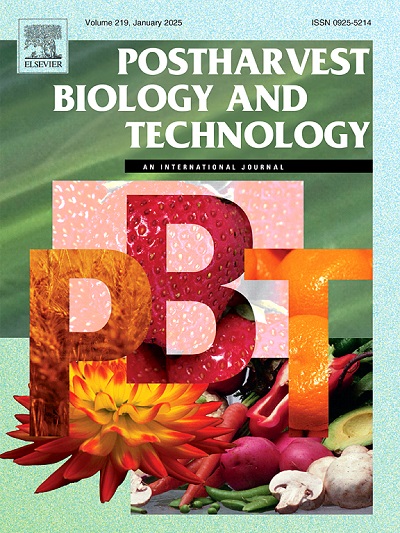茶树油在水果和蔬菜储藏中应用的最新进展
IF 6.4
1区 农林科学
Q1 AGRONOMY
引用次数: 0
摘要
水果和蔬菜生产长期受到包括真菌病原体在内的许多威胁的影响,导致从收获到最终消费的严重损失。化学防腐剂虽然有效,但可能会增加产生抗药性和污染环境的风险。对天然物质作为杀真菌剂的需求正在逐渐增加。茶树油(TTO)由互叶白千层蒸馏获得,多年来一直被广泛用作 "绿色 "和 "安全 "的抗真菌剂。本文全面总结了 TTO 的来源、成分、提取方法、生物功能及其在果蔬贮藏中的应用。特别是重点介绍了三丁基氧化锡作为抗菌剂在减少病害发生和传播、激活植物防御系统方面的功能,包括保鲜效果、抗菌机理和应用方法。这对相关研究人员有很大的帮助和参考价值。本文章由计算机程序翻译,如有差异,请以英文原文为准。
Recent advances in the application of tea tree oil in the storage of fruit and vegetables
Fruit and vegetables production is permanently affected by many threats including fungal pathogens, which leads to serious losses from harvest to final consumption. Chemical preservatives are effective but may pose an increased risk of drug resistance and contamination to the environment. The demand for natural substances as fungicides is gradually increasing. Tea tree oil (TTO) obtained by steam distillation of Melaleuca alternifolia, has been widely used as ‘green’ and ‘safety’ antifungal agent for many years. This paper comprehensively summarized the source, composition, extraction methods and biological functions of TTO and its applications in the storage of fruit and vegetables. In particular, we focused on the functions of TTO as antimicrobial agents to reduce the occurrence and spread of diseases and activate plants' defense system, including preservation effects, antimicrobial mechanisms and application methods. This was highly intended to help and serve as a reference for the pertinent researchers.
求助全文
通过发布文献求助,成功后即可免费获取论文全文。
去求助
来源期刊

Postharvest Biology and Technology
农林科学-农艺学
CiteScore
12.00
自引率
11.40%
发文量
309
审稿时长
38 days
期刊介绍:
The journal is devoted exclusively to the publication of original papers, review articles and frontiers articles on biological and technological postharvest research. This includes the areas of postharvest storage, treatments and underpinning mechanisms, quality evaluation, packaging, handling and distribution of fresh horticultural crops including fruit, vegetables, flowers and nuts, but excluding grains, seeds and forages.
Papers reporting novel insights from fundamental and interdisciplinary research will be particularly encouraged. These disciplines include systems biology, bioinformatics, entomology, plant physiology, plant pathology, (bio)chemistry, engineering, modelling, and technologies for nondestructive testing.
Manuscripts on fresh food crops that will be further processed after postharvest storage, or on food processes beyond refrigeration, packaging and minimal processing will not be considered.
 求助内容:
求助内容: 应助结果提醒方式:
应助结果提醒方式:


